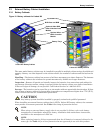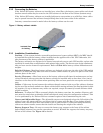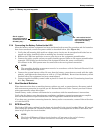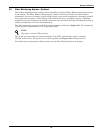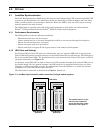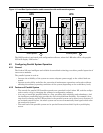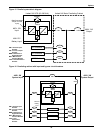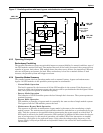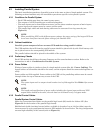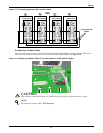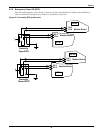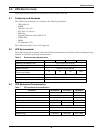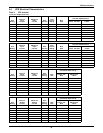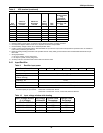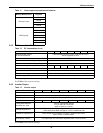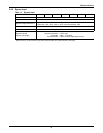
Options
30
4.3 Installing Parallel System
The basic installation procedure of parallel system is the same as that of single module system. The
following sections introduce only the installation procedures specific to the parallel system.
4.3.1 Conditions for Parallel System
• Each UPS module must have the same bypass source.
• The outputs of all UPS modules are connected altogether.
• The main inputs can be from different sources, but the phase rotation sequence of main inputs,
bypass inputs and outputs must be correct and the same.
• The parallel logic cable and load sharing cable must be connected in a ring correctly (see
Figure 18).
4.3.2 Cabinet Installation
Parallel system composed of two or more UPS modules using parallel cabinet
The UPS modules that will form the parallel system should be placed side-by-side. Each battery cabi-
net is placed next to its corresponding UPS module.
The parallel cabinet should be placed in the middle of the system.
4.3.3 Preliminary Checks
Each UPS module should have the same firmware and the same hardware version. Refer to the
instructions in 4.3.1 - Conditions for Parallel System.
4.3.4 Power Cables
Wiring of power cables is similar to that of a single module system (See 2.1 - Power Cabling). The
bypass sources of all modules should be the same, and the outputs should be connected altogether cor-
rectly.
Power cables are field-supplied. Power cables to the UPS’s of the paralleling cabinet must be routed
through either the top or bottom entry access of the UPS.
4.3.5 Parallel Control Cables
Parallel System Control Cables
Make the connections listed below on the parallel logic board (M3) inside the Liebert NX. (See
Figure 23 for the location of the parallel logic board):
Shielded and double-insulated control cables, available in lengths of up to 100 feet (30m), must be
interconnected in a ring configuration between UPS modules as shown below. The ring configuration
ensures high reliability of the control (refer to Figure 18).
NOTE
When paralleling UPS's with different power ratings, the power rating of the largest UPS can
be no more than four times the power rating of the smallest UPS
NOTE
The system input and/or output circuit breaker is to be field-supplied. See Table 8 for current
rating.
NOTE
The length and specifications of power cables including the bypass input cables and UPS
output cables should be the same, thus the load can be shared evenly in bypass mode.



